Nepal-India: Bitterness could affect the two countries' armies
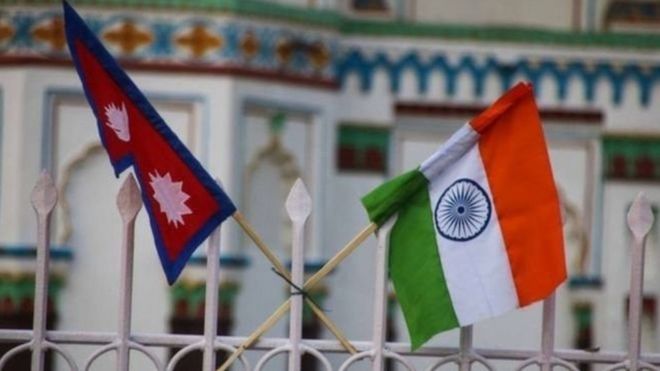
Experts have said that if the border dispute between Nepal and India is not resolved at the political level, it could jeopardize the deep ties between the two countries' armies.
Relations between the two countries have been strained since India released a map covering Nepal's Kalapani region in November last year.
Last May, when the Indian defense minister inaugurated a road connecting the Lipulek region with his country, Nepal had strongly opposed it.
Reacting to that, Indian Army Chief Manoj Mukunda Narwane pointed to China and said that the protest may have taken place in Nepal on behalf of a third country.
According to the Sugauli Treaty signed between Nepal and the then East India Company in 1816, Limpiyadhura, Lipulek and Kalapani were its territories.
As soon as Nepal approved the amendment to the constitution with the updated map, there are reports of a lack of communication between Nepal and India at the highest political level.
Special defense relationship in a complicated mode?
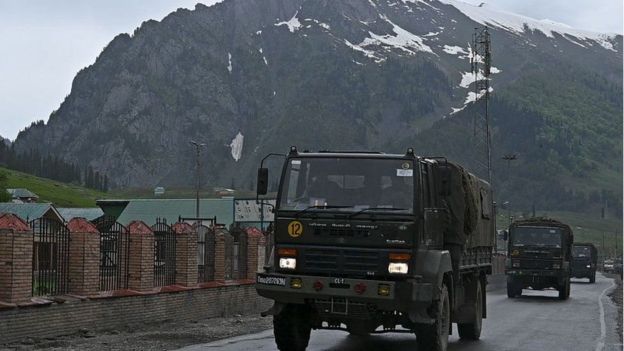
Defense experts say such a level of misunderstanding between the two governments could jeopardize the ongoing dialogue and special relationship between the Nepal Army and the Indian Army.
Sadeep Shah, a retired chariot driver of the Nepal Army, says, “If relations at the government level improve, relations at the army level will also be better. Otherwise, until the border issue is discussed, it doesn't look like there will be much discussion at the army level at that time. ”
- Is the tension on the Nepal-India border increasing?
- Nepal-India: How the new map is exacerbating old enmities
He added: "The border issue is a very complex issue for both countries. On top of that, the Indian army chief expressed his displeasure over Nepal. At present, there is no possibility of importing military equipment from India to Nepal due to lockdown. I don't know what has been discussed at the army level. But I think it will be difficult until there is some positive result at the political level. ”
There is a deep friendship between the armies of Nepal and India and the Chiefs of Army of both the countries have been given the title of Honorary Chief of Army Staff of each other since the 1950s.
In addition, military officers from both countries travel to each other's countries for training.
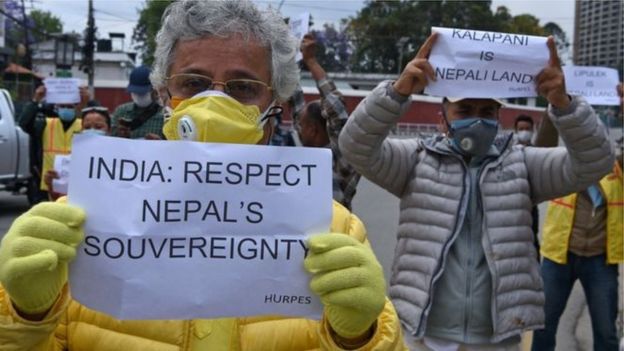
Nepal buys most of its lethal and other non-lethal military equipment, such as ammunition, from India.
Former Nepal Army chief CB Gurung said that the border dispute should be looked at separately and other issues of Nepal-India relations should not be included in it.
He said, "If the relations between the two countries are good, then the relations at the military level are also good. The army is not a special organ in itself but an integral part of the state. When India-Nepal relations are strained due to border issues, the armies of both the countries will abide by the policy adopted by their respective governments. ”
"India has to look after its national interest and Nepal has to look after its national interest. As soon as they understand that, they sit down and talk peacefully. Nepal and India have a very strange and wide-ranging relationship. Boundary disputes should not be added to it. If you mix them all together, the situation will get worse. ”
Will military diplomacy be active?
The Indian Army has about 40 battalions under seven Gurkha regiments and is said to have more than 40,000 Nepalese or people of Nepali origin.
According to the website of the Indian Embassy in Kathmandu, Nepal, there are around one million retired Indian Gurkha soldiers.
The Indian Army has deployed troops from the Gurkha Regiment in its sensitive areas along the border with China and Pakistan.
Sudhir Sharma, author of a laboratory book and editor-in-chief of Kantipur Daily, writes that the military diplomacy of the Nepal Army at that time helped to lift the undeclared blockade on the southern border after the promulgation of the constitution due to its close defense ties with the Indian Army.
- India unlikely to hold talks with Nepal
- What will be the impact on Nepal when the Indo-China border dispute escalates?
But retired Rathi Sadip Shah says military diplomacy cannot be used now.
He says, "Gurkha forces are deployed on our border, but I have also learned that high-ranking Indian military officials used to say that our government had interfered in Nepal's internal affairs." They have worked hard to lift the blockade. But the issue of borders is different. I don't think the army will be able to do anything about it until there is some talk at the level of the prime minister or the foreign minister. ”
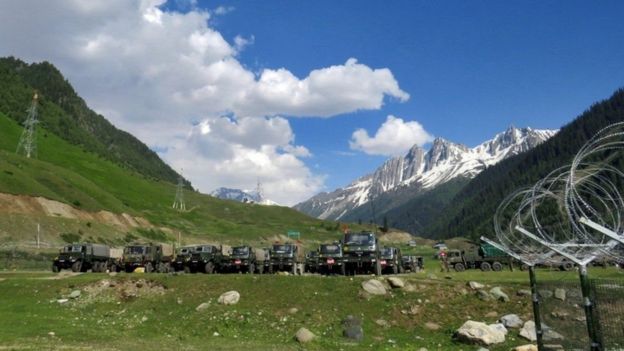
Retired Rathi CB Gurung, on the other hand, said that apart from the mechanism for resolving border disputes, the army could also help if the government deems it necessary.
He said, "Unless there is an understanding at the political level, this problem will not get anywhere. But in such a situation, the state machinery should create an environment for dialogue. If the state thinks so, and especially from India, then we have to keep all options open. ”
Confusion over Indian Army Chief's visit
On the eve of Nepal's parliament approving the updated map after initial criticism of his views on the Lipulek dispute, Indian Army Chief Narbhane said Nepal and India have deep and people-to-people ties and will continue to do so in the future.
Professor Shridhar Khatri, a political scientist who closely monitors geopolitical issues, says that this time, as in the case of Lipulec, the Indian army chief has never accused Nepal of linking a third country in the past.
He says that shows that the Indian Army has taken a tougher line than before.
- China claims no responsibility for deadly clashes with India
- Nepal's border security is only temporary
Though the Nepal Army did not comment on the statement, Chief of Army Staff Purnachandra Thapa later visited the area near Kalapani.
Retired Rathi CB Gurung, on the other hand, said that apart from the mechanism for resolving border disputes, the army could also help if the government deems it necessary.
He said, "Unless there is an understanding at the political level, this problem will not get anywhere. But in such a situation, the state machinery should create an environment for dialogue. If the state thinks so, and especially from India, then we have to keep all options open. ”
Confusion over Indian Army Chief's visit
On the eve of Nepal's parliament approving the updated map after initial criticism of his views on the Lipulek dispute, Indian Army Chief Narbhane said Nepal and India have deep and people-to-people ties and will continue to do so in the future.
Professor Shridhar Khatri, a political scientist who closely monitors geopolitical issues, says that this time, as in the case of Lipulec, the Indian army chief has never accused Nepal of linking a third country in the past.
He says that shows that the Indian Army has taken a tougher line than before.
- China claims no responsibility for deadly clashes with India
- Nepal's border security is only temporary
Though the Nepal Army did not comment on the statement, Chief of Army Staff Purnachandra Thapa later visited the area near Kalapani.
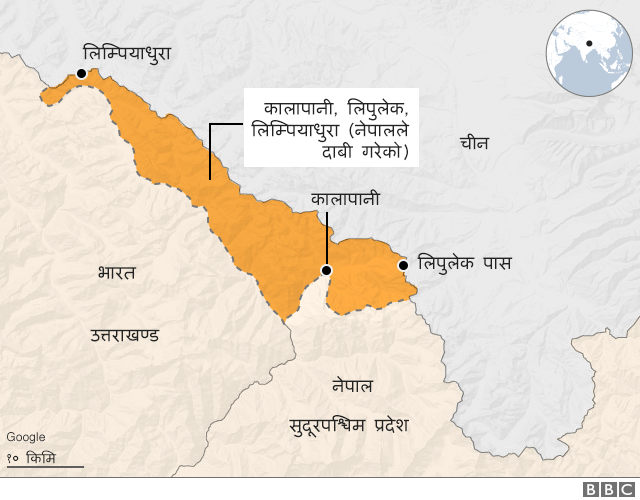
Spokesperson of the Nepal Army Bijnan Dev Pandey said that the Nepal Army has not had separate talks with the Indian Army recently.
According to him, before the outbreak of the coronavirus, a date was proposed for the official visit of Chief of Army Staff Narwane to Nepal from 22 to 25 April.
During the visit, President Vidyadevi Bhandari was asked to confer the honorary title of Maharathi of the Nepal Army.
Chief of Army Staff of the Nepal Army Purnachandra Thapa was conferred the honorary title of Maharathi of the Indian Army in January 2019.
Nepal had informed India that the visit had been postponed on April 13 citing the disaster caused by Kovid-19.
According to Army spokesperson Pandey, there has been no further correspondence between the two countries' armies since the visit.


No comments